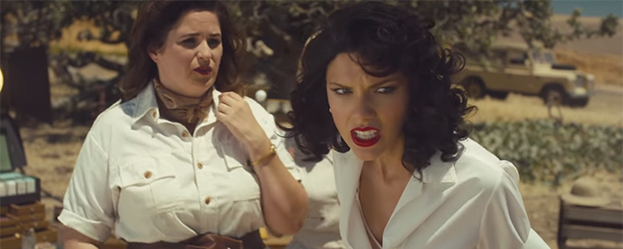This website uses cookies so that we can provide you with the best user experience possible. Cookie information is stored in your browser and performs functions such as recognising you when you return to our website and helping our team to understand which sections of the website you find most interesting and useful.
And Finally Artist News Beef Of The Week
CMU Beef Of The Week #272: Taylor Swift v Africa
By Andy Malt | Published on Friday 4 September 2015

Taylor Swift released a new music video last weekend and, not for the first time, it sparked a debate about racism in pop videos. Back in 2014, if you can remember that far, Swift released ‘Shake It Off’, the first single from her fifth album ‘1989’. The video for the song saw her dancing in a variety of styles, from hip hop to ballet, and sparked accusations that it perpetuated racist stereotypes.
The latest criticism is aimed at the pop promo for ‘Wildest Dreams’, the third in a trilogy of videos directed by Joseph Khan drawing on different movie tropes and aiming at presenting Swift as a star steeped in ‘old Hollywood’ glamour. Or something. On this occasion they’ve chosen to create a mini-movie in the vein of ‘Out Of Africa’, with a tumultuous love story based on that of Elizabeth Taylor and Richard Burton, setting the action on a 1950s film set somewhere in Africa.
In one article criticising the video, NPR contributors Viviane Rutabingwa and James Kassaga Arinaitwe accuse Swift and Khan of creating “a glamorous version of the white colonial fantasy of Africa”, as the cast are almost all white.
“We are shocked to think that in 2015, Taylor Swift, her record label and her video production group would think it was OK to film a video that presents a glamorous version of the white colonial fantasy of Africa”, they wrote. “Here are some facts for Swift and her team: Colonialism was neither romantic nor beautiful. It was exploitative and brutal. The legacy of colonialism still lives quite loudly to this day. Scholars have argued that poor economic performance, weak property rights and tribal tensions across the continent can be traced to colonial strategies. So can other woes. In a place full of devastation and lawlessness, diseases spread like wildfire, conflict breaks out and dictators grab power”.
Khan in turn defended the video, saying in a statement that it was just being true to the period in which it was set: “We collectively decided it would have been historically inaccurate to load the crew [of the fictional film depicted] with more black actors as the video would have been accused of rewriting history. This video is set in the past by a crew set in the present and we are all proud of our work. There is no political agenda in the video. Our only goal was to tell a tragic love story in classic Hollywood iconography”.
Swift is, of course, more closely scrutinised than most, and perhaps Khan is right: if this were an actual film it would have had the same casting decisions to make. But a music video, by its nature, doesn’t have the same space to explore and justify itself. And for all its big budget aims, the ‘Wildest Dreams’ vid does end up being pretty simplistic in its entire delivery, not just its presentation of an entire continent.
Perhaps Swift and Khan should have anticipated that this video would end up being problematic however they approached it, and therefore concluded that perhaps it wasn’t a concept worth pursuing. But maybe the plane tickets had been booked by the time that realisation was reached. And a whole ‘ride the controversy’ PR plan constructed. Maybe.
Here is the offending video:





